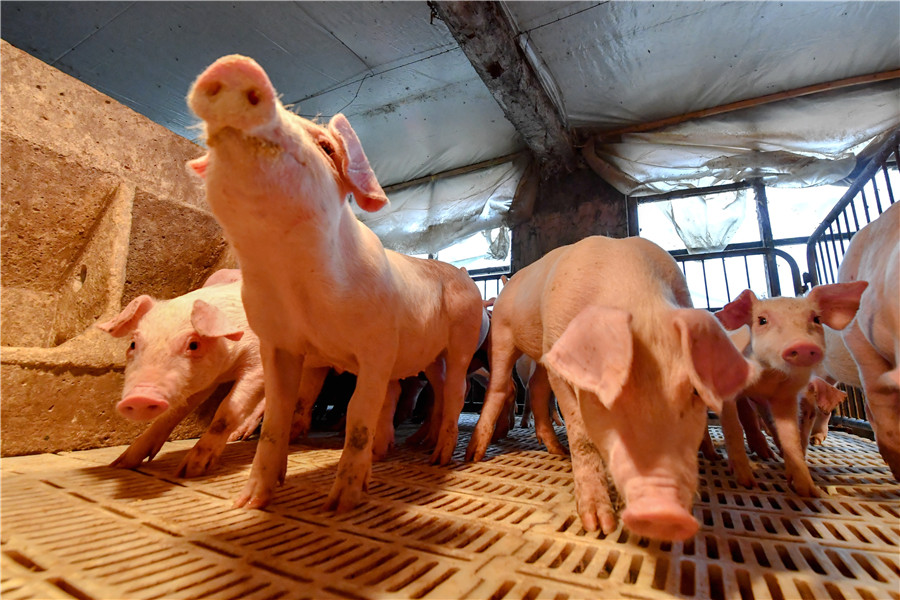Changes could help to improve nation's food safety
China Daily,August 09, 2018 Adjust font size:

Piglets are held in pens at a modern pig farm in Beijing on April 30. Wu Bo/For China Daily
Action to promote better treatment of farm animals in China started about five years ago, according to Sun Zhongchao, who has researched the subject for eight years and was the first Chinese expert to gain a doctorate in animal welfare studies.
Pigs, ducks, egg-laying hens and broiler chickens are all benefiting from the change of approach, he said.
Last year, during the World Congress on Farm Animal Welfare in Hangzhou, Zhejiang province, the central government for the first time publically expressed support for the moves and stressed its determination to promote better conditions and treatment.
"It is not only an important choice to boost the green development of China's agricultural industry, but also a positive step to improve food safety and meet the demands of the general public," said Yu Kangzhen, vice-minister at the Ministry of Agriculture and Rural Affairs.
Animal welfare standards have also been added to the Terrestrial Animal Health Code formulated by the World Organization for Animal Health, which stresses that the one of the main tasks is to improve the lives and treatment of farm animals and requires member states to implement the code's minimum animal welfare standards.
However, Sun said it will not be easy for China to meet the organization's requirements anytime soon. "Related scientific research is still at an early stage and there are no more than 100 experts in the field nationwide," he said.
He added that the public is not fully aware of the concept of animal welfare or how it benefits both farm animals and consumers. A survey he conducted recently showed that about 70 percent of students majoring in animal medical sciences were unable to describe the concept accurately.
A lack of related laws and regulations is also a problem. "Currently, the only description of farm animal welfare is the one in the Animal Industry Act - that is, abuse of farm animals is prohibited," he said.
According to Sun, a draft of China's first farm animal welfare practices standard - listing details of requirements and the principles of animal welfare on farms - has been completed and is being reviewed by ministry experts. The ministry has yet to announce a date for its release.
"The standard will contribute to the green, sustainable development of China's animal husbandry industry and prompt a more harmonious relationship between humans and farm animals," he said.